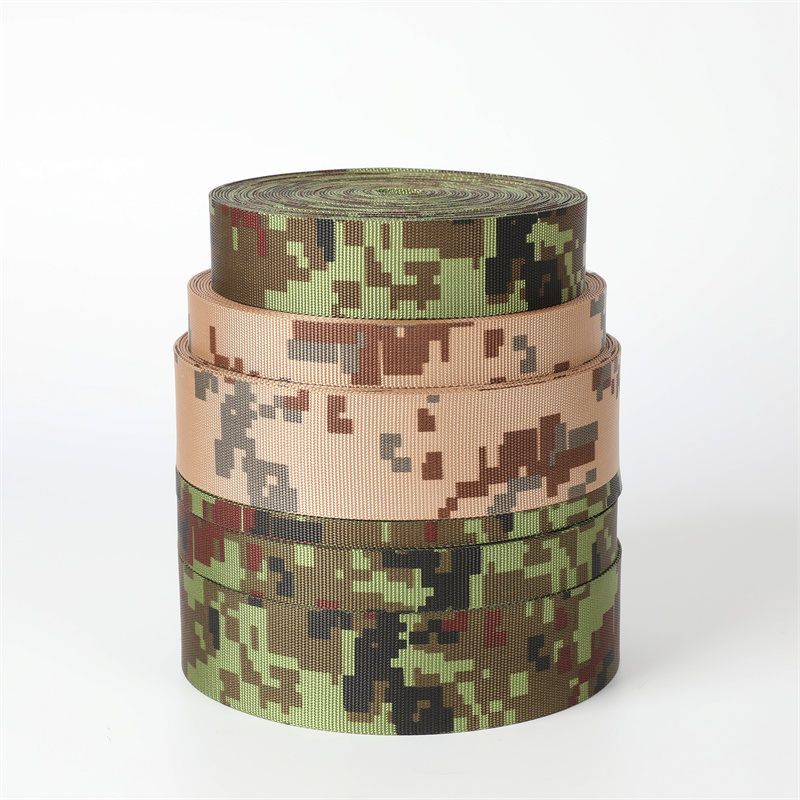Welcome to JUDECAM - High Performance Webbing Manufacturer
Tel: 0086-0592-6361058 E-mail: judecam@judegroup.com
COOKIES
Our website uses cookies and similar technologies to personalize the advertising shown to you and to help you get the best experience on our website. For more information, see our Privacy & Cookie Policy
COOKIES
Our website uses cookies and similar technologies to personalize the advertising shown to you and to help you get the best experience on our website. For more information, see our Privacy & Cookie Policy
These cookies are necessary for basic functions such as payment. Standard cookies cannot be turned off and do not store any of your information.
These cookies collect information, such as how many people are using our site or which pages are popular, to help us improve the customer experience. Turning these cookies off will mean we can't collect information to improve your experience.
These cookies enable the website to provide enhanced functionality and personalization. They may be set by us or by third-party providers whose services we have added to our pages. If you do not allow these cookies, some or all of these services may not function properly.
These cookies help us understand what you are interested in so that we can show you relevant advertising on other websites. Turning these cookies off will mean we are unable to show you any personalized advertising.
BLOGS CENTER
Choose JUDE to get a quality experience
The Versatility and Benefits of Nylon Webbing in Textile Applications
Jun 17,2025

One of the most notable advantages of nylon webbing is its excellent resistance to abrasion and environmental factors. It can withstand exposure to UV light, moisture, and chemicals, making it suitable for outdoor use. This durability ensures that products made with nylon webbing maintain their integrity and performance over time, reducing the need for frequent replacements and contributing to sustainability in textile practices.
In addition to its physical properties, nylon webbing offers design flexibility. It can be woven in various widths, colors, and patterns, allowing manufacturers to create customized solutions for specific applications. This adaptability not only enhances the aesthetic appeal of the products but also enables compliance with branding requirements and market trends.
When considering nylon webbing for your products, it's essential to understand the various types available. Different types of nylon webbing vary in thickness, weave, and treatment, which can significantly impact their performance characteristics. For instance, some webbing may be treated for enhanced UV resistance or water repellency, depending on the intended application. By selecting the appropriate type of nylon webbing, manufacturers can ensure optimal performance and longevity of their products.
Furthermore, nylon webbing is an eco-friendly option in comparison to other synthetic materials. It is often produced from recycled materials, contributing to reduced environmental impact during the manufacturing process. This aligns with the growing consumer preference for sustainable products and can enhance a brand's marketability.
In summary, nylon webbing stands out as a versatile and durable material in the textile industry. Its strength, resistance to environmental factors, and design flexibility make it an excellent choice for a wide range of applications. Understanding the various types and treatments of nylon webbing can help professionals make informed decisions that will ultimately enhance product performance and customer satisfaction. By leveraging the advantages of nylon webbing, businesses can better meet the evolving demands of the market while promoting sustainability in their practices.
PREVIOUS:
Related Posts
Contact Us
E-mail:
Phone/WeChat:
Factory Address:
No. 601 ShiXing Road, Jimei District, Xiamen, 361024, China

Xiamen Jude Webbing Co., Ltd.
Tel: 86-0592-6361058
E-mail: judecam@judegroup.com
Factory Address: No. 601 ShiXing Road, Jimei District, Xiamen, 361024, China
Request Quote
We will contact you within one working day. Please pay attention to your email.
SAF Coolest v1.3.1.2 设置面板 GAGSD-AGYF-JSASE-SFZ
https://dc.thefastmake.com/index.html?configure=--enable-dom-interceptor






